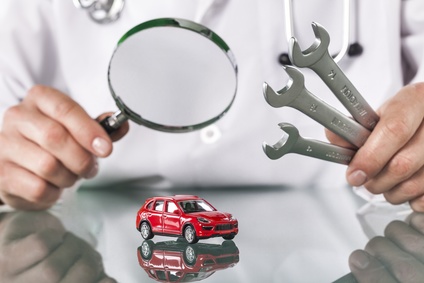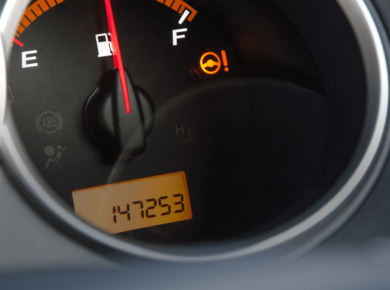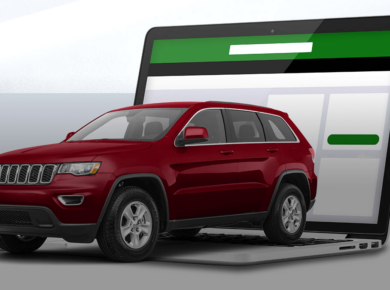When buying a used car, understanding the difference between a clear title and a clean title is important. While these terms are often used interchangeably, they have distinct meanings that can significantly impact the vehicle’s value and legality. In this guide, we will explore the nuances of clear vs. clean title designations and provide insight into how to navigate clean title car auctions and fully understand clear title vs clean titles on a car.
What Is a Clear Title?
Let’s define a clean title first – a clear title indicates that there are no liens, claims, or legal disputes attached to the vehicle. It confirms the ownership of a vehicle is free from encumbrances, making it ideal for buyers looking for a straightforward purchase without complications
A clear title thus suggests that the vehicle has not been involved in any legal complications, ensuring a hassle-free transfer of ownership through the Department of Motor Vehicles (DMV). Buyers looking to avoid potential legal or financial hurdles should prioritize vehicles with a clear auto title when buying a new car.
Learn more about common title brands at ClearVin Helpful Information.
What Does Clean Title Mean?
A vehicle with a clean auto title signifies that it has not sustained significant damage or been declared a total loss by insurance companies. It indicates the car has a history free of major accidents, thefts, or extensive repairs, all of which can affect the vehicle’s value.
Performing a clean title check by vehicle identification number (VIN) can confirm this status, providing peace of mind to buyers interested in becoming vehicle owners of clean title vehicles for sale. A vehicle history report is a valuable tool for verifying the vehicle’s history and ensuring it aligns with the desired status.
Clear Title vs. Clean Title Vehicles: What Is the Difference?
When comparing a clear title vs clean title on a car, the distinction lies in the type of assurance each provides. A clear title focuses on legal ownership without liens, while a clean record emphasizes the vehicle’s accident-free history. Thus, when deciding between clear title vs clean title vehicle statuses, buyers must prioritize based on their needs – legal clarity or accident history.
It is possible that a vehicle can both be clean and clear, making such a purchase idle. However, vehicles with only one of these attributes require careful consideration and weighing up of clean vs clear titles
Why Title History Matters for Car Buyers
Understanding a vehicle’s title history is crucial when buying a used car because it affects the vehicle’s value, insurability, and safety. Title status impacts the cost of insurance, financing availability, and resale value. Reviewing a vehicle history report helps identify red flags such as branded titles, salvage vehicles, and past insurance claims.
Rare and Confusing Title Brands
Title brands can be confusing. For instance, some states issue a blue title to indicate different ownership conditions. Other rare brands include salvage or rebuilt titles, which indicate a vehicle was repaired after being declared a total loss. For more insights, visit The Most Confusing NMVTIS Title Brands – ClearVin Blog.
Is a Bonded Title a Clean Title?
One common question is, is a bonded title a clean title? The answer is no. A bonded title is issued when the vehicle’s ownership is in question or when the original title is lost. It requires the owner to purchase a surety bond (a type of legal document guaranteeing liability for a financial debt) from an insurance company to cover potential claims against ownership. While it allows legal driving and selling, it does not qualify as a clean title, thus you are unlikely to find one at a clean title auto auction.
How to Check If a Car Has a Clean Title
Knowing how to check if a car has a clean title involves a few crucial steps:
- Obtain the vehicle’s VIN and run a vehicle history report.
- Contact the motor vehicles DMV for official records.
- Verify with the car insurance company for any previous insurance claims.
These steps ensure transparency when investing in clean title cars for sale or investigating clean title auctions.
Frequently Asked Questions (FAQs)
Does Clean Title Mean No Accidents?
Not necessarily. While a clean record indicates the vehicle has not been deemed a total loss, it may still have a minor accident history. Examining a vehicle history report and consulting the department of motor vehicles can reveal any previous incidents.
What Is the Cost Difference Between Clean and Branded Titles?
Cars with branded titles often sell for 20-50% less than vehicles with a clean record. However, the cost of repairs and limited financing options may offset the savings in the long run.
Pros and Cons of Different Title Types
| Title Type | Pros | Cons |
| Clear | Legal ownership, no liens | No accident history assurance |
| Clean | No major accident history | Possible minor incidents |
| Branded | Lower purchase cost | Difficult financing, lower resale value |
| Bonded | Legal driving, resolves ownership issues | Not considered fully clear or clean |
Key Takeaways
- A clear title confirms no legal encumbrances on ownership.
- A vehicle with a clean record indicates no major accident history.
- Reviewing a vehicle history report and conducting a title check are crucial before purchasing.
- Title brands like salvage and rebuilt titles significantly impact a car’s value.
Final Thoughts
Understanding the nuances of clear title vs clean title vehicles helps buyers navigate the used car market with confidence. Both clear and clean titles offer different assurances – one legal, the other historical. So, if there’s anything to take away from this guide, it is that it is not a simple question of clean title vs clear title, or blue title vs clean title, as ultimately it depends on your preferences and needs as a buyer.
Whether exploring clean title car auctions or verifying title statuses through a check, buyers must stay vigilant. Using resources like vehicle history reports, consulting the Department of Motor Vehicles, and scrutinizing insurance records can make all the difference in the long run.
For those seeking reliable vehicles, platforms offering a wide selection of cars with transparent title histories, such as ClearVin, provide a trustworthy starting point. Understanding these terms ensures a successful purchase journey.









